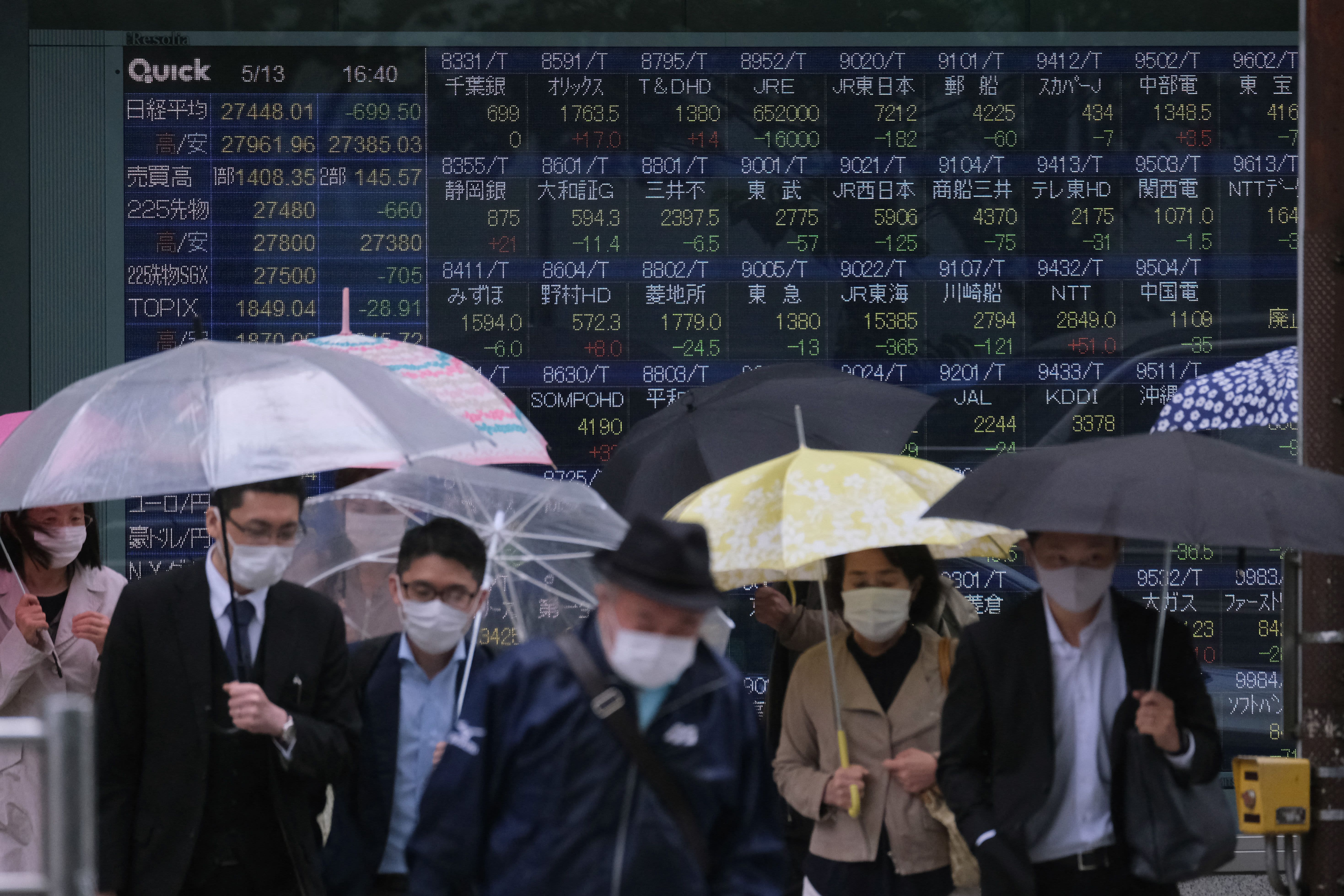
SINGAPORE — Mainland China markets led gains in Asia-Pacific on Thursday as Australia’s unemployment rate fell and Singapore tightened its monetary policy.
The Shenzhen Component reversed losses to rise 1.259%, with energy stocks rising 3.68% according to Eikon data. The Shanghai Composite was up 0.31% and the CSI 300, which tracks the largest mainland-listed stocks, gained 0.49%.
The Nikkei 225 in Japan pared losses and rose 0.73% while the Topix index was 0.23% higher.
In South Korea, the Kospi was up 0.1% and the Kosdaq advanced 0.46%.
Australia’s S&P/ASX 200 was 0.43% higher.
Australia added 88,400 jobs in June, official data showed, much more than the 30,000 that analysts polled by Reuters predicted.
The country’s unemployment rate was at 3.5%, lower than the 3.8% expected and a 48-year low, Reuters reported.
The Hang Seng index in Hong Kong slipped in early trade, but was last 0.3% higher.
MSCI’s broadest index of Asia-Pacific shares outside Japan rose 0.28%.
Singapore GDP, monetary policy
In economic data, Singapore’s Ministry of Trade and Industry said advance estimates show the country’s gross domestic product grew 4.8% in the second quarter of 2022 compared to the same period a year ago. That’s up from 4% in the first quarter of the year, but lower than the 5.2% growth that analysts in a Reuters poll expected.
The Monetary Authority of Singapore tightened monetary policy in an off-cycle move Thursday. The central bank said it will re-center the mid-point of the exchange rate policy band, known as the Singapore dollar nominal effective exchange rate, up to its prevailing level.
The slope and width of the band will not change, the MAS said. The central bank manages monetary policy through setting the exchange rate and not interest rates.
The SGD should be supported in the near term by this surprise tightening, but stubbornly high inflation means we can’t rule out further action from the MAS in October.ING
“Inflation risks will certainly be tackled,” Vishnu Varathan, head of economics and strategy at Mizuho Bank, told CNBC’s “Squawk Box Asia” on Thursday. He said the MAS has more bandwidth and flexibility because they tightened policy upfront.
Singapore’s Straits Times index fell 0.79% on Thursday, while the Singapore dollar rose to 1.3955 against the greenback following the announcement.
“The SGD should be supported in the near term by this surprise tightening, but stubbornly high inflation means we can’t rule out further action from the MAS in October,” according to a Thursday note from ING.
U.S. inflation report
Consumer prices rose 9.1% from a year ago, above the 8.8% Dow Jones estimate. That’s the fastest pace since November 1981, and investors are concerned about how aggressive the Fed will have to be to fight rising prices.
“Stubbornly high inflation increases the risk that the FOMC continues to hike aggressively and triggers a recession,” Kristina Clifton, an economist at Commonwealth Bank of Australia wrote in a note Thursday.
Already, two Wall Street firms are speculating that the Fed could go for a 100-basis-point rate hike this month, which Canada’s central bank did on Wednesday.
Overnight in the U.S., stocks declined following the inflation report.
The Dow Jones Industrial Average dropped 208.54 points, or 0.67%, to 30,772.79, while the S&P 500 slid 0.45% to 3,801.78. The Nasdaq Composite fell 0.15% to close at 11,247.58.
The yield curve inversion in U.S. Treasury, seen as a recession signal, widened on Wednesday stateside. The 2-year yield last stood at 3.1983%, higher than 2.9558% for the 10-year note. Yields move inversely to prices.
Taiwan’s chipmaker TSMC and Japan’s Fast Retailing are due to report earnings Thursday as well.
Currencies and oil
The U.S. dollar index, which tracks the greenback against a basket of its peers, briefly slipped below 108, but was last at 108.234.
The Japanese yen weakened to 138.03 per dollar, and the Australian dollar changed hands at $0.6779.
Oil futures rose in Asia trade. U.S. crude inched up 0.57% to $96.85 per barrel, while Brent crude climbed 0.68% to $100.25 per barrel.
— CNBC’s Jeff Cox and Yun Li contributed to this report.
Source: CNBC
